August 7 stands as one of history’s most eventful days, witnessing the rise and fall of empires, groundbreaking discoveries, and moments that shaped our modern world across centuries of human achievement.
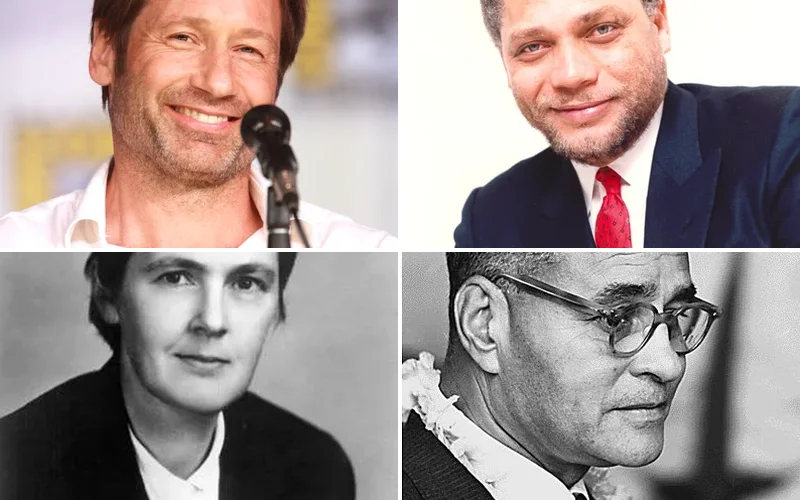
Politics and Government Events on August 7
1964 – Gulf of Tonkin Resolution Passes Congress
The U.S. Congress granted President Lyndon B. Johnson sweeping war powers to combat North Vietnamese attacks on American forces. This pivotal resolution effectively launched America’s full-scale involvement in the Vietnam War.
The legislation fundamentally altered the balance of power between Congress and the presidency regarding military engagement. Johnson would use these expanded powers to escalate American military presence in Southeast Asia dramatically.
1960 – Ivory Coast Gains Independence from France
The West African nation of Ivory Coast achieved its independence from French colonial rule on this historic date. President Félix Houphouët-Boigny led the peaceful transition to sovereignty after decades of colonial administration.
The newly independent nation immediately began establishing its own governmental institutions and diplomatic relationships. This milestone marked the end of French colonial control over one of West Africa’s most economically important territories.
1946 – Turkish Straits Crisis Begins
The Soviet Union challenged Turkey’s sovereignty over the strategically vital Turkish Straits with a formal diplomatic note. This confrontation marked one of the earliest tensions of the emerging Cold War between East and West.
Stalin’s government demanded joint control over the waterway connecting the Black Sea to the Mediterranean. The crisis would eventually strengthen Turkey’s resolve to seek NATO membership and Western protection.
1969 – First Native American Bureau Head Appointed
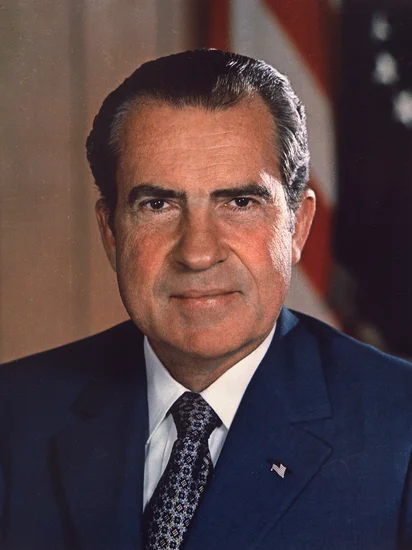
President Richard Nixon appointed Luis R. Bruce, a Mohawk-Oglala Sioux leader, as commissioner of the Bureau of Indian Affairs. Bruce co-founded the National Congress of American Indians and brought unprecedented Native American representation to federal Indian policy.
This appointment signaled a shift toward greater Native American self-determination in government affairs. Bruce’s leadership would influence federal Indian policy during a crucial period of civil rights advancement.
1993 – Menominee Activist Leads Bureau of Indian Affairs
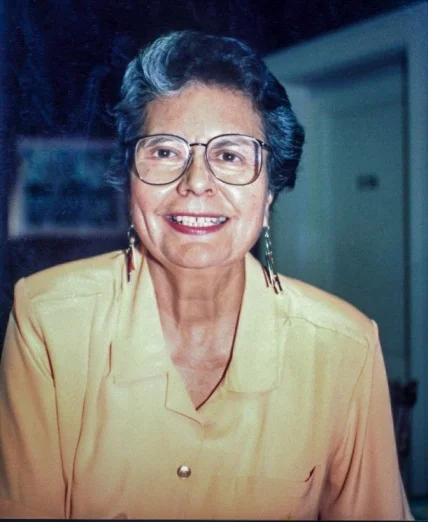
Ada Deer, a prominent Menominee activist and educator, was sworn in as head of the Bureau of Indian Affairs. Her appointment represented a milestone in Native American political representation at the federal level.
Deer had previously led successful efforts to restore federal recognition to the Menominee tribe. Her leadership brought decades of advocacy experience to federal Indian policy implementation.
Military and Naval History on August 7
1942 – Battle of Guadalcanal Begins
United States Marines launched the first major American offensive of World War II with simultaneous landings on Guadalcanal and Tulagi. This bold assault marked America’s transition from defensive to offensive operations in the Pacific theater.
The campaign would rage for six months as Japanese and American forces fought desperately for control. Victory at Guadalcanal proved decisive in halting Japanese expansion and beginning the Allied drive toward Tokyo.
1990 – American Forces Deploy to Saudi Arabia
The first American soldiers arrived in Saudi Arabia as part of Operation Desert Shield during the Gulf War crisis. This deployment marked the beginning of a massive military buildup in response to Iraq’s invasion of Kuwait.
President George H.W. Bush authorized the deployment to protect Saudi oil fields and prepare for potential military action. The operation would eventually involve over 500,000 American troops in the largest military deployment since Vietnam.
1933 – Simele Massacre Occurs in Iraq
The Kingdom of Iraq’s military forces slaughtered over 3,000 Assyrian civilians in the village of Simele. This systematic killing campaign targeted the Christian minority population in northern Iraq.
The massacre became known as Martyrs Day among Assyrian communities worldwide. This tragic event highlighted the persecution of religious minorities in the newly formed Iraqi state.
2008 – Russo-Georgian War Begins
Armed conflict erupted between Russia and Georgia over the disputed territory of South Ossetia. Russian forces launched a full-scale invasion that would reshape the geopolitical landscape of the Caucasus region.
The five-day war resulted in Russian recognition of South Ossetia and Abkhazia as independent states. International observers condemned the conflict as a violation of Georgian sovereignty and territorial integrity.
Science and Discovery Milestones on August 7
1944 – Harvard Mark I Calculator Dedicated
IBM formally dedicated the Automatic Sequence Controlled Calculator, better known as the Harvard Mark I, the world’s first program-controlled calculator. This revolutionary machine represented a crucial step toward modern electronic computing.
The Mark I could perform complex mathematical calculations automatically using punched paper tape instructions. Harvard University and IBM collaborated on this groundbreaking project that influenced subsequent computer development.
1959 – Explorer 6 Satellite Launches
The Explorer 6 satellite blasted off from Cape Canaveral, Florida, advancing America’s space exploration capabilities. This mission provided crucial data about Earth’s radiation belts and magnetic field properties.
Explorer 6 transmitted the first crude television images of Earth from space back to ground stations. The satellite’s scientific instruments gathered valuable information about cosmic radiation and solar wind interactions.
1976 – Viking 2 Enters Mars Orbit
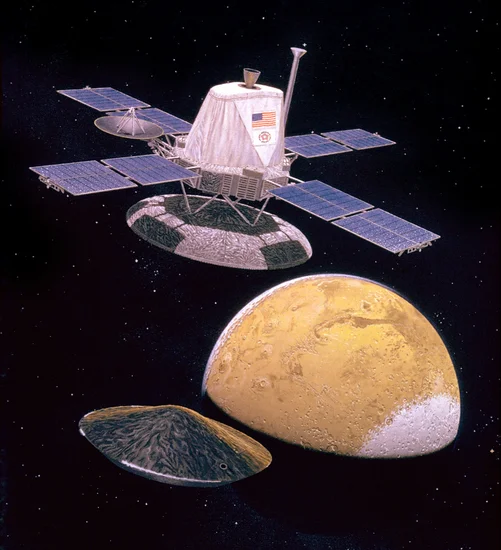
NASA’s Viking 2 spacecraft successfully entered orbit around Mars, joining its twin Viking 1 in the comprehensive exploration of the Red Planet. This achievement doubled America’s surveillance capability around Mars.
The orbiter would map Martian surface features while its lander prepared for descent to the Utopia Planitia region. Viking 2’s mission provided unprecedented detailed images and scientific data about Mars’ geology and atmosphere.
1947 – Kon-Tiki Expedition Concludes
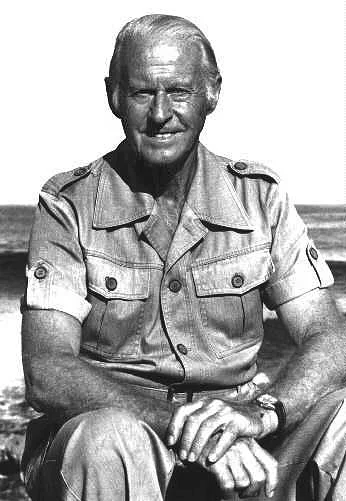
Thor Heyerdahl’s balsa wood raft Kon-Tiki crashed into the reef at Raroia in the Tuamotu Islands after a 101-day Pacific Ocean voyage. The expedition successfully demonstrated that ancient peoples could have traveled from South America to Polynesia.
The 7,000-kilometer journey proved that prehistoric migrations across the Pacific were technically feasible. Heyerdahl’s daring experiment challenged prevailing theories about Polynesian settlement patterns and ancient maritime capabilities.
Cultural and Arts Events on August 7
1974 – Philippe Petit’s World Trade Center Wire Walk

French high-wire artist Philippe Petit performed an unauthorized and death-defying walk between the twin towers of the World Trade Center. Suspended 1,368 feet above Manhattan, Petit walked back and forth for 45 minutes before police arrested him.
The spectacular performance captivated New York City and became one of the most famous artistic stunts in history. Petit’s fearless display of artistry and courage transformed him into an international sensation and cultural icon.
1985 – Japan Selects First Astronauts

Japan chose Takao Doi, Mamoru Mohri, and Chiaki Mukai as the nation’s first astronauts, marking a historic milestone in Japanese space exploration. Their selection represented Japan’s growing commitment to international space cooperation and scientific advancement.
These pioneering astronauts would eventually fly on Space Shuttle missions and contribute to international space station operations. Their achievements inspired a new generation of Japanese scientists and engineers to pursue careers in aerospace.
1962 – Frances Kelsey Receives Presidential Award
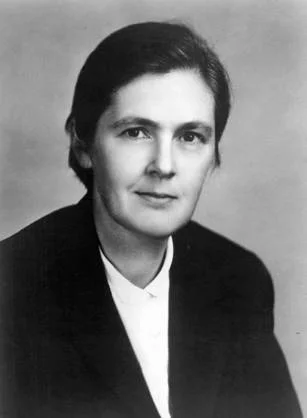
Canadian-born American pharmacologist Frances Oldham Kelsey received the U.S. President’s Award for Distinguished Federal Civilian Service. Her courageous refusal to authorize thalidomide prevented a major birth defect crisis in America.
Kelsey’s scientific integrity and careful review process saved countless American babies from thalidomide-related disabilities. Her actions led to stronger drug approval regulations and enhanced FDA oversight of pharmaceutical safety.
Religious and Social Events on August 7
1930 – Last Northern Lynching Occurs
The last confirmed lynching of African Americans in the Northern United States took place in Marion, Indiana. Thomas Shipp and Abram Smith were killed by a mob, marking a tragic milestone in American racial violence.
This horrific event galvanized civil rights activists and highlighted the persistence of racial terrorism beyond the South. The lynching became a powerful symbol of the urgent need for federal anti-lynching legislation.
1978 – Love Canal Emergency Declared

President Jimmy Carter declared a federal emergency at Love Canal due to toxic waste contamination that threatened residents’ health. This unprecedented action brought national attention to environmental justice and corporate responsibility.
The crisis forced hundreds of families to evacuate their homes permanently due to chemical contamination. Love Canal became a defining moment in American environmental policy and led to the creation of the Superfund program.
1987 – Cold War Swimming Feat
American swimmer Lynne Cox became the first person to swim from the United States to the Soviet Union across the Bering Strait. She completed the treacherous journey from Little Diomede Island in Alaska to Big Diomede in Soviet territory.
Cox’s remarkable achievement occurred during the height of Cold War tensions, symbolizing peaceful human connection across political divides. Her swim required extraordinary physical endurance in near-freezing Arctic waters.
Business and Economic Events on August 7
1995 – Chile Declares Weather Emergency
The Chilean government declared a state of emergency across the southern half of the country due to severe weather conditions. The event, known as the “White Earthquake,” brought intense cold, wind, rain, and snowfall that devastated the region.
The emergency response coordinated relief efforts for thousands of affected residents and businesses. Agricultural sectors suffered significant losses from the unprecedented weather patterns that disrupted normal economic activity.
1947 – Bombay Takes Over Transport Company
The Bombay Municipal Corporation formally acquired control of the Bombay Electric Supply and Transport (BEST) company. This municipal takeover represented a significant shift toward public ownership of essential urban services.
The acquisition ensured continued public transportation and electricity services under government oversight. BEST would become one of India’s most successful public utility companies, serving millions of Mumbai residents.
1981 – Washington Star Ceases Publication

The Washington Star newspaper ended its operations after 128 years of publication, marking the end of an era in American journalism. The closure eliminated a major competitor to the Washington Post in the nation’s capital.
The Star’s demise reflected broader changes in the newspaper industry and shifting reader preferences. Many veteran journalists lost their positions as Washington became essentially a one-newspaper town.
Transportation and Infrastructure on August 7
1909 – First Women’s Transcontinental Auto Trip

Alice Huyler Ramsey and three companions became the first women to complete a transcontinental automobile journey across America. Their 59-day expedition from New York to San Francisco challenged prevailing assumptions about women’s capabilities and automotive reliability.
The pioneering journey demonstrated both the potential of automobile transportation and women’s adventurous spirit. Ramsey’s achievement inspired countless other women to embrace automotive travel and mechanical knowledge.
1927 – Peace Bridge Opens

The Peace Bridge officially opened, connecting Fort Erie, Ontario, and Buffalo, New York, across the Niagara River. This architectural achievement strengthened economic and cultural ties between the United States and Canada.
The bridge facilitated increased trade and tourism between the two nations during the prosperous 1920s. Its symbolic name reflected the peaceful relationship between neighboring democracies sharing the world’s longest undefended border.
1997 – Space Shuttle Discovery Launches
Space Shuttle Discovery launched on mission STS-85 from Kennedy Space Center in Cape Canaveral, Florida. The mission conducted various scientific experiments and deployed satellites for Earth observation and atmospheric research.
Discovery’s crew performed crucial maintenance on the Hubble Space Telescope and tested new technologies for future space missions. The successful mission contributed valuable data for understanding Earth’s climate and atmospheric dynamics.
2020 – Air India Express Crash

Air India Express Flight 1344 overshot the runway at Calicut International Airport in Kerala, India, killing 21 of 190 passengers and crew. The aircraft was carrying Indian nationals stranded abroad due to COVID-19 pandemic restrictions.
The crash highlighted the challenges of operating flights during the global pandemic and monsoon weather conditions. Investigation revealed that runway conditions and weather played significant roles in the tragic accident.
Sports and Recreation on August 7
2007 – Barry Bonds Breaks Home Run Record
Barry Bonds hit his 756th career home run at AT&T Park in San Francisco, surpassing Hank Aaron’s 33-year-old record. The historic moment occurred during the San Francisco Giants’ game against the Washington Nationals.
Bonds’ achievement sparked controversy due to steroid allegations that clouded his accomplishment. Despite the controversy, the record represented a significant milestone in baseball history and athletic achievement.
1998 – Embassy Bombings in East Africa

Terrorist attacks on United States embassies in Dar es Salaam, Tanzania, and Nairobi, Kenya, killed approximately 212 people. The coordinated bombings marked a significant escalation in international terrorism targeting American interests.
The attacks were later attributed to al-Qaeda operatives under Osama bin Laden’s direction. These bombings foreshadowed the September 11 attacks and led to increased security measures at American diplomatic facilities worldwide.
1997 – Fatal Miami Plane Crash

Fine Air Flight 101 crashed immediately after takeoff from Miami International Airport, killing five people aboard the cargo aircraft. The crash occurred when the improperly loaded DC-8 became unstable during its initial climb.
Investigation revealed that cargo loading errors caused the aircraft’s center of gravity to shift dangerously. The accident led to improved cargo loading procedures and enhanced pilot training for freight operations.
Notable Births on August 7
1942 – Garrison Keillor, American Humorist

American humorist, novelist, and radio host Garrison Keillor was born in Minnesota. His childhood in rural Minnesota would later inspire his famous radio program “A Prairie Home Companion.”
Keillor’s storytelling ability and gentle humor made him one of America’s most beloved radio personalities. His fictional town of Lake Wobegon became a cultural touchstone for American small-town life and values.
1966 – Jimmy Wales, Wikipedia Co-founder

American entrepreneur Jimmy Wales was born in Alabama and would later co-found Wikipedia, revolutionizing access to information worldwide. His vision of free, collaborative knowledge sharing transformed how people access and contribute to encyclopedic content.
Wales’ creation of Wikipedia democratized information distribution and challenged traditional publishing models. His commitment to open-source knowledge has made Wikipedia one of the most visited websites globally.
1975 – Charlize Theron, South African Actress

South African actress Charlize Theron was born in Benoni and would become one of Hollywood’s most accomplished performers. Her dramatic range and commitment to challenging roles earned her critical acclaim and numerous awards.
Theron’s Academy Award-winning performance in “Monster” demonstrated her extraordinary transformation abilities. Her career spans action films, dramas, and comedies, establishing her as one of cinema’s most versatile talents.
1987 – Sidney Crosby, Canadian Ice Hockey Player

Canadian ice hockey superstar Sidney Crosby was born in Cole Harbour, Nova Scotia, and became one of the NHL’s greatest players. His exceptional skills and leadership abilities earned him the nickname “Sid the Kid.”
Crosby’s career achievements include multiple Stanley Cup championships and Olympic gold medals for Canada. His dedication to excellence and sportsmanship has made him a role model for young hockey players worldwide.
1976 – Dimitrios Eleftheropoulos, Greek Footballer
Greek footballer Dimitrios Eleftheropoulos was born and became one of Greece’s most successful goalkeepers. His career spanned multiple decades and included appearances in major international competitions.
Eleftheropoulos represented Greece in European Championships and World Cup qualifying matches. His defensive skills and leadership helped establish Greece as a competitive force in international football.
1982 – Abbie Cornish, Australian Actress

Australian actress Abbie Cornish was born in Lochinvar, New South Wales, and developed into one of Australia’s most talented performers. Her early career in Australian television and film established her as a rising star.
Cornish’s international breakthrough came with critically acclaimed performances in independent films. Her versatility across different genres has made her one of Australia’s most successful film exports.
1904 – Ralph Bunche, American Political Scientist
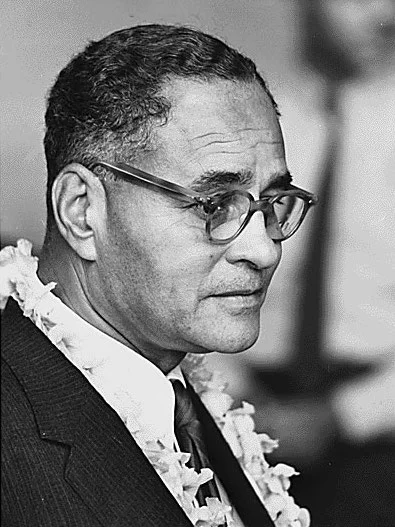
American political scientist Ralph Bunche was born in Detroit, Michigan, and became the first person of color to receive the Nobel Peace Prize. His diplomatic career focused on international mediation and conflict resolution.
Bunche’s work with the United Nations in the Middle East earned him worldwide recognition. His commitment to peaceful conflict resolution helped establish principles for modern international diplomacy.
1960 – David Duchovny, American Actor

American actor David Duchovny was born in New York City and achieved fame through his television and film work. His portrayal of FBI agent Fox Mulder in “The X-Files” became a cultural phenomenon.
Duchovny’s academic background in English literature complemented his acting career. His intellectual approach to character development has distinguished him among contemporary television actors.
Notable Deaths on August 7
1941 – Rabindranath Tagore, Indian Poet and Nobel Laureate

Indian poet, author, and philosopher Rabindranath Tagore died at age 80, leaving behind an extraordinary literary legacy. His poetry, music, and educational philosophy profoundly influenced Bengali culture and Indian intellectual life.
Tagore’s Nobel Prize in Literature in 1913 made him the first non-European to receive this honor. His humanistic philosophy and artistic vision continue to inspire writers and thinkers worldwide.
1957 – Oliver Hardy, American Comedy Actor
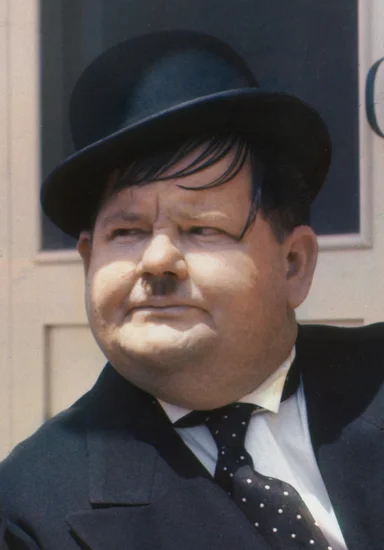
American comedy actor Oliver Hardy died at age 65, ending his legendary partnership with Stan Laurel. The duo’s slapstick comedy films entertained millions during the early decades of cinema.
Hardy’s distinctive persona and comedic timing made him one of film’s most recognizable performers. His collaboration with Laurel produced timeless comedy classics that continue to entertain new generations.
1970 – Harold Haley, American Judge
American judge Harold Haley was killed during a courthouse hostage situation in Marin County, California. Armed men attempted to free prisoner George Jackson, resulting in a shootout that claimed multiple lives.
Haley’s death shocked the legal community and highlighted security vulnerabilities in courthouse operations. The incident led to enhanced security measures at judicial facilities across the United States.
1989 – Mickey Leland, American Congressman
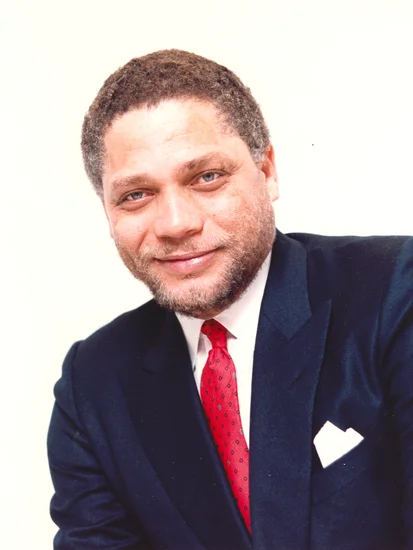
American Congressman Mickey Leland died in a plane crash in Ethiopia while on a humanitarian mission. The Texas Democrat was traveling to investigate refugee conditions when his aircraft went down in mountainous terrain.
Leland’s commitment to fighting hunger and poverty made him a respected advocate for humanitarian causes. His death while serving others exemplified his lifelong dedication to helping disadvantaged communities.
2005 – Peter Jennings, Canadian-American Journalist
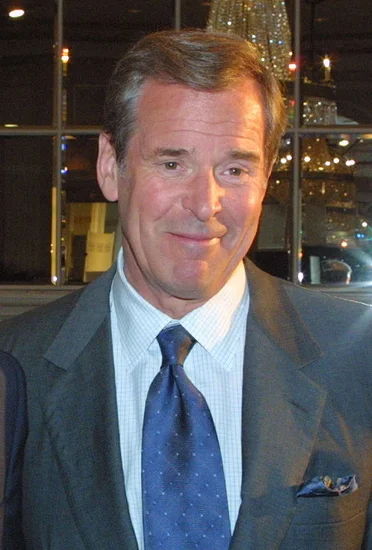
Canadian-American journalist Peter Jennings died at age 67 after a battle with lung cancer. His distinguished career as ABC World News anchor made him one of television’s most trusted news personalities.
Jennings’ international reporting experience and thoughtful analysis earned him numerous journalism awards. His death marked the end of an era when television news anchors commanded enormous public respect and influence.
2015 – Frances Oldham Kelsey, Canadian Pharmacologist
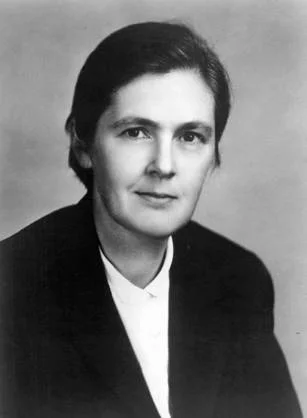
Canadian-born American pharmacologist Frances Oldham Kelsey died at age 101, remembered for her courageous stand against thalidomide approval. Her scientific integrity prevented a major public health disaster in the United States.
Kelsey’s careful review process and insistence on additional safety data saved countless American babies from birth defects. Her legacy established higher standards for pharmaceutical regulation and drug safety evaluation.
2011 – Nancy Wake, New Zealand-English Spy
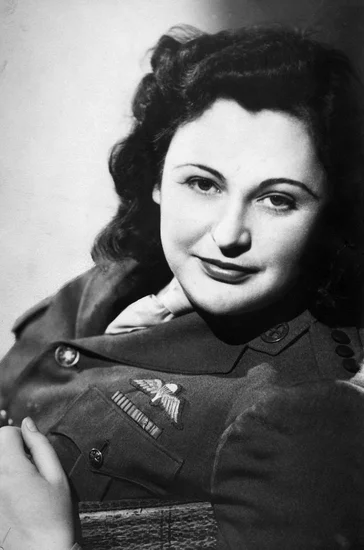
New Zealand-born British Special Operations Executive Nancy Wake died at age 98, ending a remarkable life of wartime heroism. Known as the “White Mouse,” she was one of the Allies’ most effective agents in Nazi-occupied France.
Wake’s courage and resourcefulness helped coordinate French Resistance operations against German occupation forces. Her wartime exploits made her one of the most decorated female agents of World War II.
Holidays and Observances on August 7
Assyrian Martyrs Day
The Assyrian community worldwide observes Martyrs Day to commemorate the victims of the 1933 Simele massacre in Iraq. This solemn remembrance honors the thousands of Assyrian Christians killed during systematic persecution.
The observance serves as both a memorial to the victims and a reminder of ongoing struggles for religious freedom. Assyrian communities use this day to educate others about their history and advocate for minority rights.
Battle of Boyacá Day in Colombia
Colombia celebrates the anniversary of the Battle of Boyacá, a decisive victory in the country’s independence struggle against Spanish colonial rule. This national holiday commemorates the 1819 battle that secured Colombian freedom.
The victory at Boyacá marked the beginning of the end for Spanish rule in northern South America. Colombian patriots honor the sacrifice of independence fighters who secured their nation’s sovereignty.
Republic Day in Ivory Coast
Ivory Coast celebrates Republic Day, marking the nation’s independence from French colonial rule in 1960. This national holiday features parades, cultural celebrations, and patriotic displays throughout the country.
The observance reflects Ivorian pride in national sovereignty and cultural identity. Citizens use this day to celebrate their nation’s achievements and reaffirm their commitment to democratic values.
National Purple Heart Day in the United States
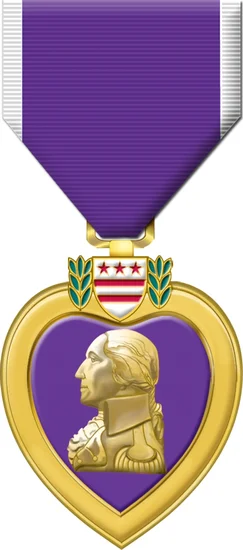
The United States observes National Purple Heart Day to honor military personnel wounded or killed in service to their country. This day recognizes the courage and sacrifice of America’s wounded warriors.
The Purple Heart medal, established by George Washington, represents the nation’s gratitude to those who shed blood in military service. Communities across America hold ceremonies to honor these brave service members.
